Josef Moudřík
Evolving Non-linear Stacking Ensembles for Prediction of Go Player Attributes
Dec 31, 2015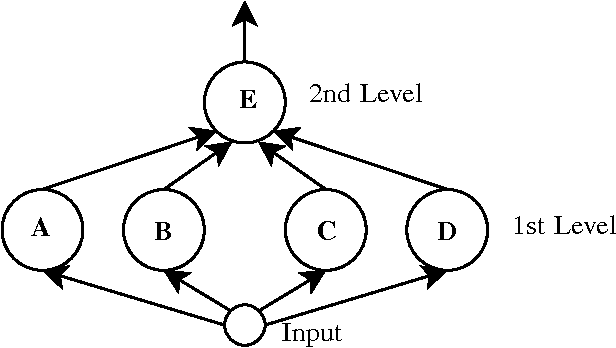
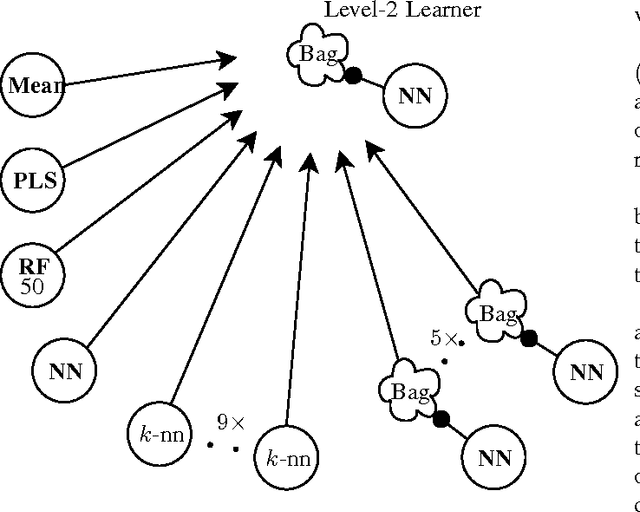
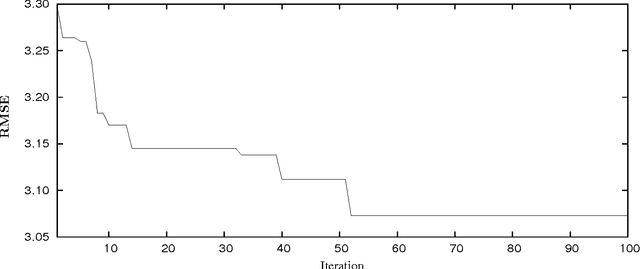
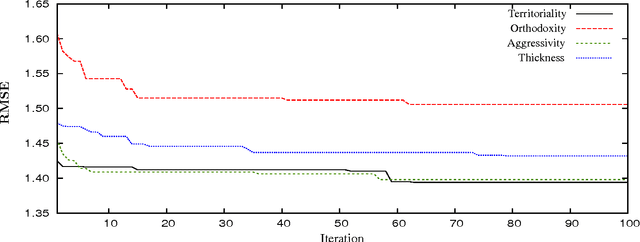
Abstract:The paper presents an application of non-linear stacking ensembles for prediction of Go player attributes. An evolutionary algorithm is used to form a diverse ensemble of base learners, which are then aggregated by a stacking ensemble. This methodology allows for an efficient prediction of different attributes of Go players from sets of their games. These attributes can be fairly general, in this work, we used the strength and style of the players.
Evaluating Go Game Records for Prediction of Player Attributes
Dec 30, 2015
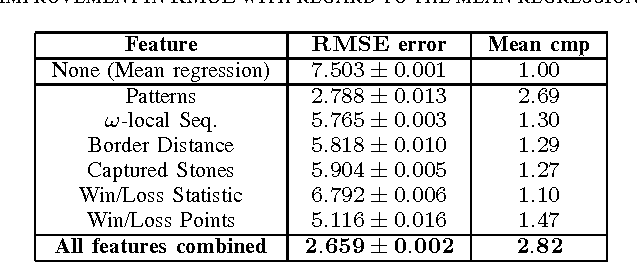
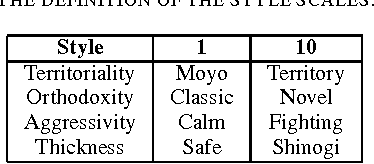
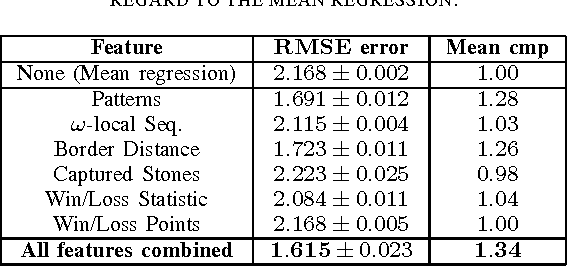
Abstract:We propose a way of extracting and aggregating per-move evaluations from sets of Go game records. The evaluations capture different aspects of the games such as played patterns or statistic of sente/gote sequences. Using machine learning algorithms, the evaluations can be utilized to predict different relevant target variables. We apply this methodology to predict the strength and playing style of the player (e.g. territoriality or aggressivity) with good accuracy. We propose a number of possible applications including aiding in Go study, seeding real-work ranks of internet players or tuning of Go-playing programs.
On Move Pattern Trends in a Large Go Games Corpus
Sep 24, 2012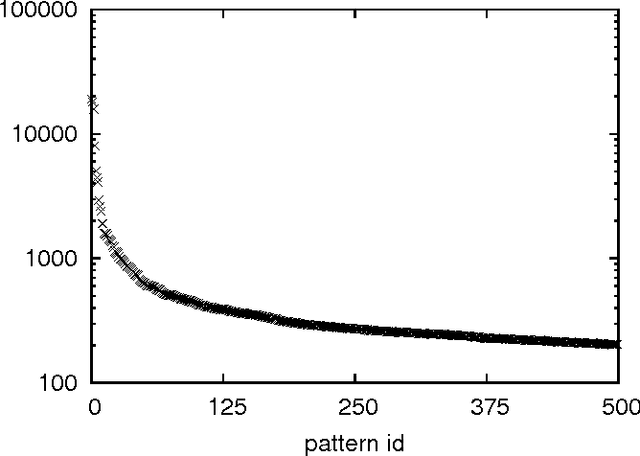

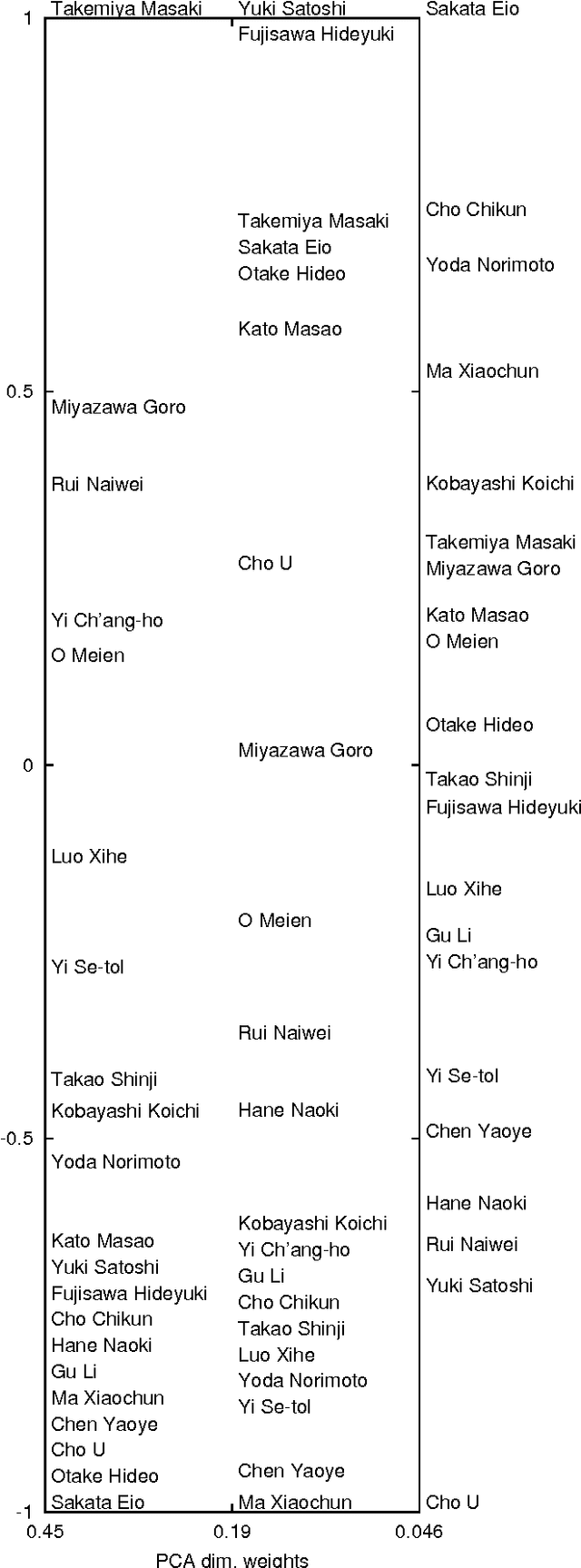
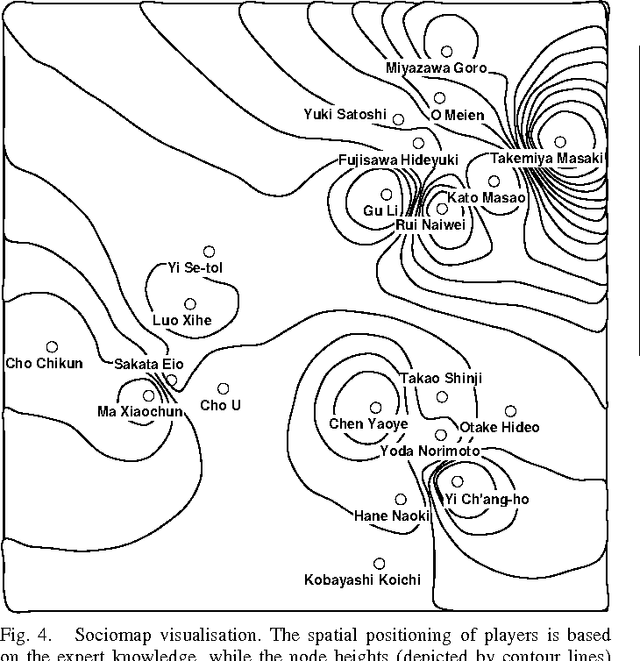
Abstract:We process a large corpus of game records of the board game of Go and propose a way of extracting summary information on played moves. We then apply several basic data-mining methods on the summary information to identify the most differentiating features within the summary information, and discuss their correspondence with traditional Go knowledge. We show statistically significant mappings of the features to player attributes such as playing strength or informally perceived "playing style" (e.g. territoriality or aggressivity), describe accurate classifiers for these attributes, and propose applications including seeding real-work ranks of internet players, aiding in Go study and tuning of Go-playing programs, or contribution to Go-theoretical discussion on the scope of "playing style".
 Add to Chrome
Add to Chrome Add to Firefox
Add to Firefox Add to Edge
Add to Edge